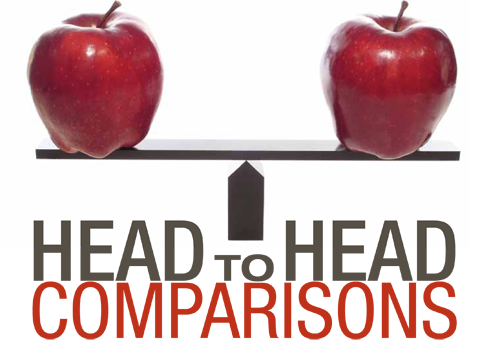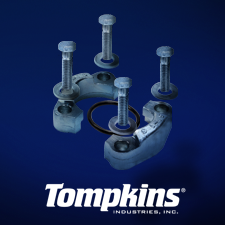Head to head comparisons

How to get customers to look favorably at you instead of your competition
By Troy Harrison
One of the toughest challenges (but perhaps the most enjoyable) is dealing with a competitive situation in selling. I was reminded of this a couple of days ago when I was the customer in a sales call. The situation was that I was purchasing a technology offering, and I was comparing a few different products. Now, I’m not a “techy” person. I’m not necessarily one who gets into the deep details of technology products; I’m more focused on the result and what it will do for me.
My salesperson handled the situation badly, and made pretty much every mistake a salesperson could make. His ‘questioning’ consisted of badgering me to tell him what other programs I was comparing, and then once I told him, he spent the rest of the call explaining how his competitors were substandard. Not surprisingly, this didn’t help me. Of course, most salespeople know that the first rule of selling against a competitor is “don’t speak ill of your competition,” but few know what to do in the absence of speaking negatively about them. Let’s talk about what you should be doing – and should NOT.
Don’t say “apples to apples.” If there’s any phrase that salespeople use CONSTANTLY that raises my hackles, it’s “Well, let’s make sure we’re comparing apples to apples.” First of all, “apples to apples” is one of those nonsensical, hackneyed phrases that bottom-feeder salespeople use. The intent is to metaphorically lay out a side by side list of features so that the salesperson can say, “Well, see? We have flipperwotzen version 6, and they only have version 5! That’s why you should buy from us!” The trouble is that the customer might not even use the flipperwotzen. Yep, my salesperson did this to me. That’s because he didn’t understand the most basic
element of competitive selling.
Start at the end and work backwards. In selling – and particularly in competitive selling – the most important fact is the result that the customer is seeking. When comparing two products or services, the only meaningful data is the two offerings’ ability to achieve the customer’s desired result. Of course, this means that you have to know the result the customer is seeking. The salesperson I dealt with didn’t. Why not? Because he didn’t ask me – and he apparently didn’t listen when I volunteered the information. He kept referring to capabilities that I wouldn’t use and characteristics that didn’t affect my end-user experience.
Forget the features. This is a bit repetitive, but it bears repeating. The product characteristics that are your main bragging points might not be important at all to your customer. For instance, my salesperson pointed at his competition and said, “Well, they outsource a lot of their solution, and we do everything in-house.” I was using the free trial of both solutions, and in my end-user experience, the one that was supposedly ‘outsourced’ was much more seamless and user-friendly than his. If they’d outsourced it, kudos to them; they had outsourced to the right people.
Don’t insult the customer. Yep, my guy did this. At one point, he said, “Well, the problem here is that you really don’t know anything about these types of products. If you did, you’d understand why mine is superior.” From past experience, you probably know how likely I am to buy from someone who has insulted me. It didn’t work this time, either. I’m sure he got a bit frustrated during the call, but his frustration was of his own making. Had he asked me what I was seeking in the beginning – or listened when I attempted valiantly to explain what I was seeking – he’d have known and been able to adapt his sales approach.
If you must speak about your competitor’s product, know it like the back of your hand. My salesperson made several claims about his main competitor’s product that were demonstrably false. I’ll give him the benefit of the doubt and say that he just didn’t know; a less charitable customer would say that he was lying. Either way, it was bad for him. If you’re going to make claims, you’d better know exactly what you’re talking about, and you’d better be current and correct. Just because something was true six months ago doesn’t mean that it’s true today. Once you are incorrect about one thing, your customer will assume that you are incorrect about all things.
Finally, do not get dragged into a price match. “Matching the price” is one of the worst things any salesperson can do. The customer’s interest in purchasing two competing products is seldom equal in the customer’s mind. Hence, the price of those two products does not need to be, and should not be, equal. Still, the salesperson who hears, “If you’ll match the price, I’ll buy from you” is sorely tempted to do so. You’re only one question away from getting a (perhaps slightly) higher price. That question is this: “Why would you rather buy from me than from them?” If you’re offered a price match opportunity, that means that you are the preferred seller – so you need to use that. Whatever the customer’s answer to that question, it has a monetary value, and it’s your job to realize that value.
Ultimately, the salesperson’s tactics worked against him. After the call, I decided to do more research, and what I found was that customer reviews and independent reviews showed that his criticisms of the competitor actually applied more to his own product; I signed an agreement for the competitor later that same day.
Competitive selling is tough – but it’s also fun. The key is not to step on the common land mines.
 Troy Harrison is author of “Sell Like You Mean It!” and president of SalesForce Solutions, a sales training, consulting and recruiting firm. For booking training, consulting or to sign up for his weekly E-zine, call (913) 645-3603, e-mail TroyHarrison@SalesForceSolutions.net or visit www.SalesForceSolutions.net.
Troy Harrison is author of “Sell Like You Mean It!” and president of SalesForce Solutions, a sales training, consulting and recruiting firm. For booking training, consulting or to sign up for his weekly E-zine, call (913) 645-3603, e-mail TroyHarrison@SalesForceSolutions.net or visit www.SalesForceSolutions.net.
This article originally appeared in the March/April 2014 issue of Industrial Supply magazine. Copyright 2014, Direct Business Media.












